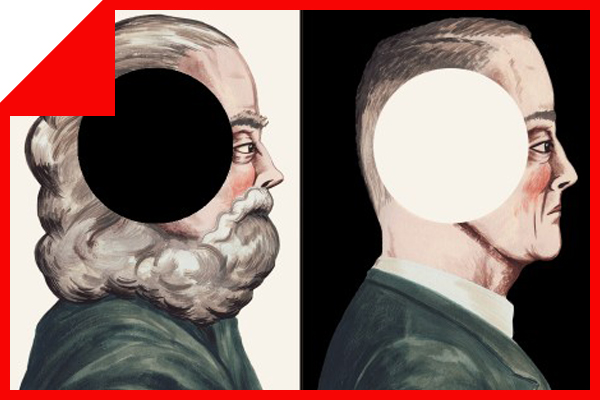What is it about “The God Delusion” that this breed of non-believers finds so upsetting? With his recent “Does God Exist?” essay, Alan Lightman joins a long line of atheist apologists who feel compelled to respond negatively to Richard Dawkins’ campaign but find it hard to put forward a crisp, fact-based objection. Since Lightman endorses Dawkins’ “completely convincing” dismantling of the standard arguments for the existence of God, his main concern appears to be that Dawkins is too darn clear, too brutally frank, when he articulates his case. Lightman wants us to keep our criticisms hyper-polite, and pass lightly over the glaring problems posed by today’s religions.
This sort of fuzziness has its uses. The Vaseline on the camera lens that blurs out the wrinkles on the face of the aging movie star is not just a sop to her vanity; it is both considerate and self-serving. Let’s not dwell on what her face has become; let’s allow her to re-create the beauty that stunned us in the past. Everybody wins. Lightman defends much the same policy with regard to religion: Let’s keep our objections in soft focus and avoid drawing attention to even quite ugly flaws.
For instance, he notes that famous contemporary scientists Francis Collins, the head of the Human Genome Project, and Owen Gingerich, a Harvard professor of astronomy and history of science, defend an “interventionist” (miracle-making) God that violates the Central Doctrine of science, but he lets them both off the hook. What excuses them from the standards of rational inquiry that science demands? Lightman cites the existence of worthwhile areas of intellectual exploration (in art and literature and philosophy, for instance) that do not share the scientific ideal of restricting oneself to working on “well-posed problems” — ones that can be stated precisely enough to guarantee a definite solution. But some of the claims that Collins and Gingerich endorse are, in fact, unsupported answers to “well-posed problems”: Is there any rational grounding for a belief in a miracle-making interventionist God? (No.) Do we need God to account for the brilliant design of living things? (No.) Do we need God to somehow underwrite or ground our confidence that our ethical convictions are not just parochial prejudices? (No.) There is nothing gloriously, ineffably, tantalizingly imponderable about these questions, carefully crafted and vetted by philosophers and scientists over the centuries.
Lightman fails to consider the possibility, moreover, that the reason many theological questions continue to evade the bright light of rational inquiry is that they have been ingeniously crafted by theologians to do just that. As the traditional concepts of God, heaven and hell crumble in the collision with science, the theologians invent new, more “sophisticated” concepts to take their place. They are improvements only in the sense that they are more immune to falsification by any imaginable discovery. This is, of course, recognized by many, perhaps most, traditional religious leaders, who regard theologians as closet atheists, lapsed believers trying to hang in there.
Lightman argues for a broader definition of faith, but he doesn’t explain what the boundaries of a properly expansive view of faith might be, and what sorts of nonsense it might tolerate. Faith healing instead of medical care? The Rapture? The efficacy of animal sacrifice? Or, what about convictions less relevant to important decision-making in life: the virgin birth and transubstantiation of the host? As a scientist he would declare any secular claims along those lines to be outright hoaxes. Is it mere politeness that prevents him from telling Francis Collins that if he, as a Roman Catholic, believes these doctrines, he is — in a word — deluded? How far does Lightman’s tolerance extend? By failing to define the limits of his own tolerance for faith, his point, it appears, is to engender a warm, fuzzy protective glow around religion.
Like many atheists, Dawkins — as Lightman surely knows — is deeply appreciative of all the glorious art and music and poetry that religion has engendered. But still he trots out the canonical list of glories to float the implication that we atheists are a philistine lot. Shame on him. That is what I call faith-fibbing. Not so much a bald-faced lie as a carefully indirect misrepresentation. He can’t actually claim that Dawkins doesn’t weigh the many contributions of religion to the arts against the damage it has wrought. Dawkins does just that, and arrives at a judgment with which Lightman apparently disagrees: All things considered, religion’s blessings are outweighed by the harm they do. The problem is that Lightman doesn’t tackle that difficult issue; he prefers to sing the praises of faith without holding it to account. If you hawked a health spa or weight-loss regime with this sort of propaganda, you could be charged with false and misleading advertising.
Editor’s Note: Look for Lightman’s response in tomorrow’s Salon.

